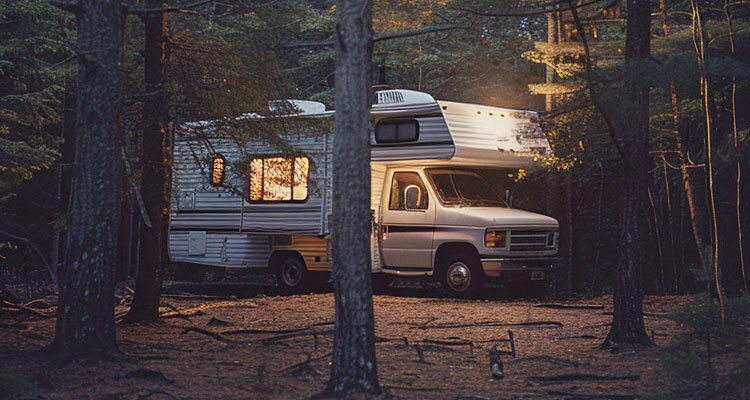
You can call it dry camping, boondocking or simply going off the grid. Whatever your preference, if you’re relatively new to the world of camping somewhere without traditional amenities, you’ll need these RV dry camping tips and hacks before your first dry camping trip.
When you take your motorhome or RV to a traditional campground or RV park, you may not realize how much you rely on the provided amenities. Water and electric hookups, dump stations, even the camp store with its limited offerings — it all makes the RVing experience easier.
Don’t let the thought of leaving all that behind for dry camping scare you, though. Dry camping can be incredibly rewarding and enjoyable. You can head to an off-the-grid scenic destination where you can enjoy the great outdoors solo. You can head to a festival or conference and easily (and sometimes freely) post up in a lot. Dry camping allows you to simply go further, without being limited to RV parks and campgrounds.
To get you started, here are our five, top RV dry camping tips and hacks for newbies.
1. Fill Up and Clear Out
One of the most basic RV dry camping tips and hacks? It’s just plain common sense. Before you head out on your trip, fill up your fresh water tanks. Additionally, empty out your gray and black water tanks.
When dry camping, you most likely won’t have access to water of any kind. You certainly won’t have access to a dump station. To avoid a mid-trip mishap, ensure you have plenty of fresh water on hand. Ensure you have plenty of space in your gray and black water tanks to fill them as the days go on.
Additionally, have an idea of how long that fresh water can last you. Know how quickly you fill up your gray and black water tanks. Then, plan your trip length accordingly. Throughout your trip, be sure to keep an eye on your water levels.
(This same tip goes for your propane tank! Fill ‘er up!)
2. Invest in the Right Equipment
You may need to outfit your rig with some additional equipment, to make your dry camping experience as enjoyable as possible. In some cases, you may even need additional equipment to ensure your experience is entirely safe.
A generator will come in handy, and many motorhomes already have generators. However, it isn’t always necessary, if you have access to another power source like solar panels.
Solar power is a very popular option for frequent dry campers and boondockers, who want an extra power source beyond a generator. You can purchase solar panels for your motorhome roof, or portable solar panels.
In some instances, you may be able to simply rely on your rig’s battery power, but it can be a risk depending on the circumstances.
Another investment that can help you conserve power, no matter your source? LED lights. They’ll use less overall power and emit less heat (meaning you’ll need your AC less, too!).
3. Know Where You’re Going
One of the biggest mistakes first-time dry campers make? Not really knowing all the necessary details about their destination.
Before you plan a dry camping trip, be sure to thoroughly research your destination, starting with whether or not you’re allowed to dry camp there in the first place. Some public lands allow it, some don’t, some do with certain restrictions. Private land is a bit trickier.
Additionally, know where the nearest resources are. Where’s the nearest place to get water or dump your tanks? Where’s the nearest place to fuel up?
Don’t just roll up, set up camp and assume you’re good to go.
4. Conserve Your Resources
If you really want to dry camp for as long as possible, you’ll need to conserve your resources, such as water. Think of ways you can save water, such as by taking shorter or less frequent showers, or using and washing fewer dishes.
If you’re attempting to rely on your battery power alone, without the help of a generator or solar panels, use as little electricity as possible. When thinking about how you might cook your food, look for ways you can forgo your stove, oven and microwave, and, instead, cook outside on a portable grill.
If your RV is outfitted as such, switch appliances over to gas mode when dry camping, so that they’re not using up valuable battery power while you’re parked.
Additionally, think about an often-overlooked resource: trash space. There aren’t any dumpsters off the grid. How can you reduce the amount of trash you produce and how will you store it until you can dispose of it?
5. Go for a Practice Run
Lastly in our top RV dry camping tips and hacks, simply go for a practice run. Before you head to the middle of nowhere and discover you’re ill-suited for your first dry camping trip, try this mode of travel in a safe place.
Maybe try dry camping at a campground, where you have access to electricity, water and waste disposal, if you need them. However, abstain from using them unless you absolutely have to. It’ll give you an idea of what to expect, without putting you and your fellow campers in any danger or uncomfortable spots.
Need More Dry Camping Tips and Hacks, Plus More Handy Advice for All Things RVing?
Check out the My RV Resource library, filled with informational blogs on topics such as finding a mobile repair technician or renting an RV for the first time.
RV Dry Camping Tips and Hacks FAQs
1. How long can you dry camp?
The length of time you can dry camp depends on a few factors, including how large your water tanks are and your available power sources. However, most can comfortably dry camp for a few days, at least.
2. Is there a difference between dry camping and boondocking?
While the two terms are used interchangeably, there are technically differences. Dry camping is camping without hookups, while boondocking more specifically refers to camping in a remote area, by yourself.
3. Can you shower while dry camping?
If you have enough water in your freshwater tank, you can still shower while dry camping. However, you’ll want to be careful not to use too much of your freshwater supply.

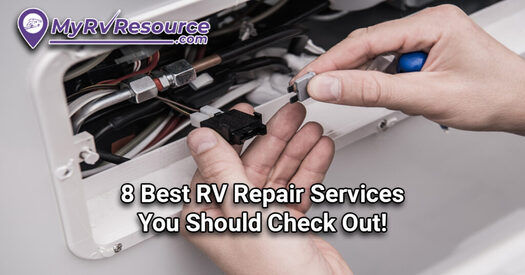
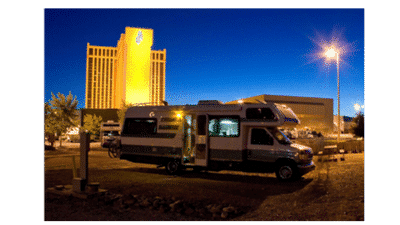
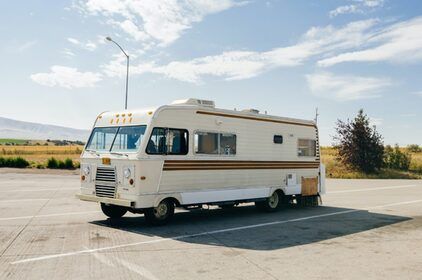
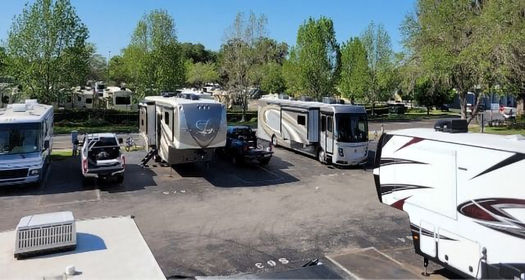
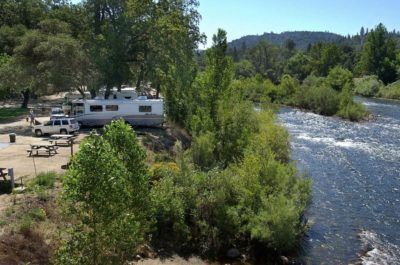
Leave Comment Below
1 Comment(s)